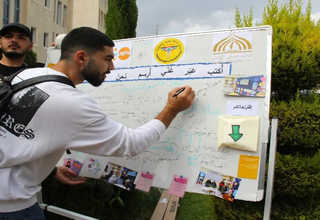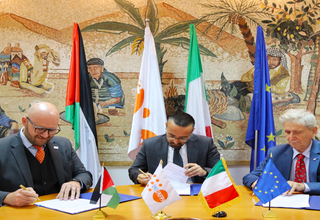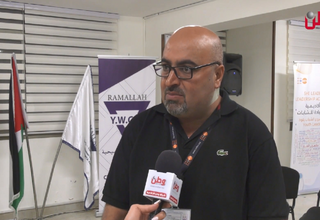محتوى ذات صلة
الأخبار
افتتحت جامعة فلسطين الاهلية خيمة التفريغ النفسي في حدبقة الجامعة، وذلك من خلال تنظيم يوم مميز من الانشطة التفاعلية وذلك بحضور كل من أ. خالد شناعة...
3 أكتوبر/تشرين الأول 2023
الأخبار
بقيمة كلية تبلغ 600.000.00 يورو مقدمة من الوكالة الإيطالية للتعاون الإنمائي، سيساهم المشروع في تعزيز المساواة بين الجنسين، وتقوية العلاقات الأسرية...
29 مايو/أيار 2023
الأخبار
ضمن مشروع المشاركة السياسية والمدنية للشباب في فلسطين بعنوان "الشباب يقود"، الذي ينفذه صندوق الأمم المتحدة للسكان، إتحاد جمعيات الشابات...
19 سبتمبر 2022


